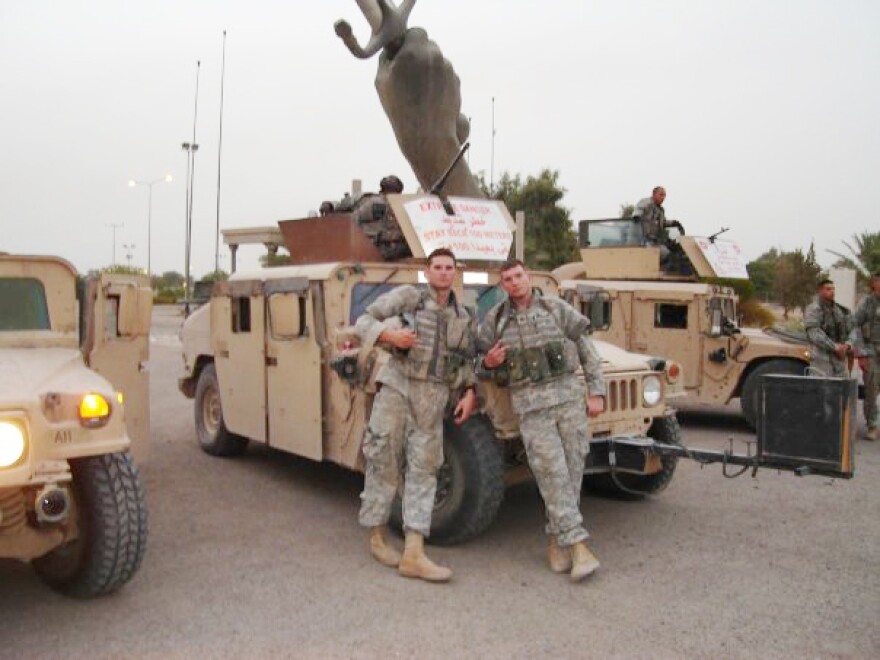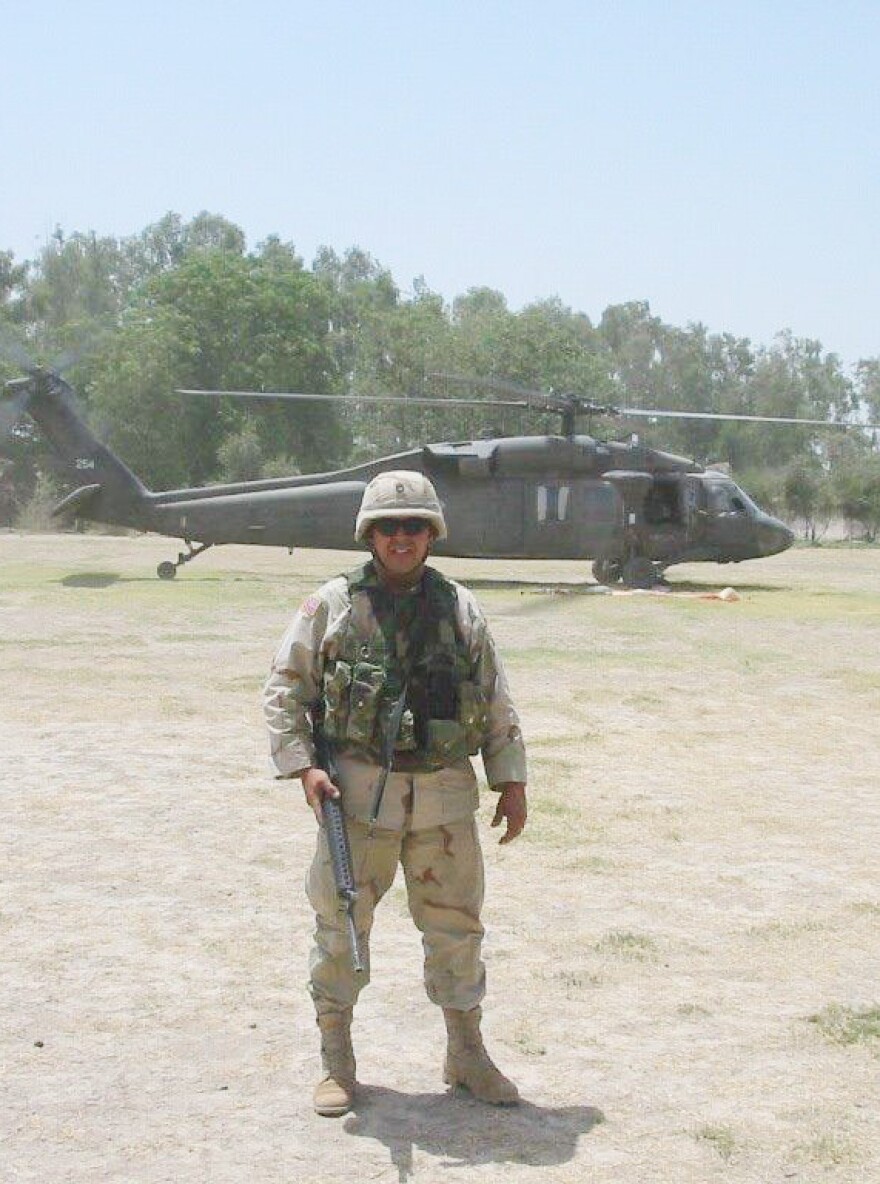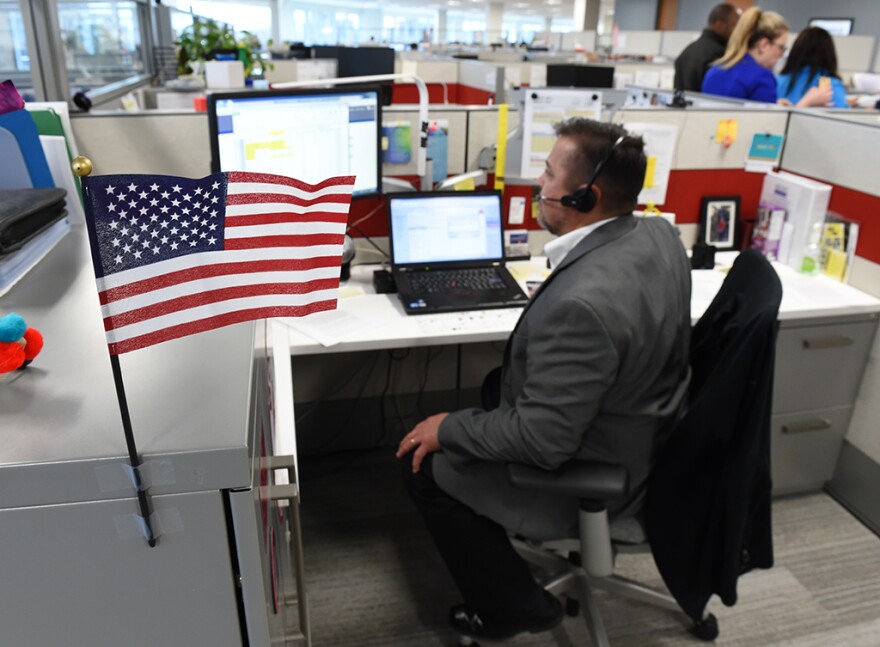It's rarely easy making the transition from the military to a career in the civilian world.
Jamie Hamming knows that. She was an Army combat medic between 1990 and 1995. Her tours included stints in Korea and Somalia.
An army medic does a lot of surgery on the fly. There's no one-to-one civilian equivalent, so when Hamming left the service, she was considered unqualified or overqualified for all sorts of related occupations.
So Hamming had little choice but to go back to school to pursue a nursing degree.
Eventually, she was hired by Spectrum Health System in Grand Rapids, and she moved into the Human Resources department there.
That's when she got the idea for a new kind of veterans program.

"Anyone can hire a veteran, they can deliver pizzas, so you can get a job. But their skills are not being utilized," says Hamming.
She was determined that her program wouldn't be yet another veteran hiring initiative. It would address all the unmet needs among veteran job-seekers, especially unemployed and underemployed veterans.
"Veteran Explorers" is born
Participants accepted to the Veteran Explorers program at Spectrum work at up to three, 10-week internships in a range of departments at Spectrum Health, from tech support to warehouse management to recruiting.
Now in its third year, Veteran Explorers has an 86% placement rate in full-time jobs at Spectrum. Hamming says it's not unusual for interns to be offered jobs before they finish their rotations.
Interns are paid $11 an hour while they are in the program. Hamming says the decision to pay the interns was a last-minute act of faith by Spectrum's administration.
She says the program is really paying for itself - replacing some of the cost to recruit new employees in more traditional ways.
It takes more than a paycheck
But Hamming says the real difference with Veteran Explorers is the extensive support system it provides.
"In the military, they had that network, they had that family atmosphere, and they knew that someone would always be there," says Hamming. "It's a bond that you can't explain unless you've experienced it."
Veteran Explorers aims to replace that support system as much as possible. Participants meet as a group regularly, eye-balling each others' resumes, networking, and just plain talking and supporting each other as they move through the program.
And if a veteran has post-traumatic stress disorder, they get no-judgment referrals to mental health treatment in the community.
That was a big help for Gary Vetitoe.
Veterans with PTSD face special challenges to finding employment
Vetitoe urges potential employers of veterans to avoid stereotyping. Because not all veterans who've seen combat suffer from post-traumatic stress disorder.
But it was a problem for him. Vetitoe served two tours of duty in Iraq as a cavalry scout. He had some pretty dark days when he returned home.
"You almost lose your identity," says Vetitoe of the transition out of the military. "When you're serving in the military, you're part of something greater than yourself. And now you're on your own. I even fell into that rut of, 'Well, I'm a combat vet who has PTSD. That's all I'm ever gonna be.'"

Veteran Explorers changed the course of his life, he says. He's now a recruiter in the Talent Acquisition Department of Spectrum Health.
As a veteran, Vetitoe is able to "translate" the experiences of applicants with military experience, and see the connections between what they did in the military and what they could do for a large corporation like Spectrum Health.
That's key, says Jamie Hamming. Having someone with military experience in the hiring department is crucial for any company that wants to hire vets.
Veterans often must reinvent themselves after the military
Some veterans are able to find a job that correlates closely with the job they did in the military.
John McGary was a dog handler in the Army. "I love canines," he enthuses, watching as his dog Kane interacts with families entering the hospital. McGary did canine search and rescue operations once he left the military, before landing this job as a police officer and canine handler at Spectrum.
But many other veterans have to find a completely new career.
Ray Figueroa spent 20 years in the Army in a variety of positions, including 13 years as a geospatial analyst, handling video and images from unmanned and manned aircraft. Now, he handles small projects for Spectrum, from office moves to minor construction projects to redecoration.
Figueroa says it's not as dramatic a shift in job duties as it might seem at first. At its most basic, his job in the Army was to support the troops on the ground - his job at Spectrum is to support the staff at hospitals and clinics.

David DeCouto is now a recruiter at Spectrum Health. His job in the army was a little different. He was a combat engineer.
He jokes, "Combat engineers like to blow things up. And then we like to build things too. So we blow 'em up and build 'em right back up."
Hugh LeHigh is one of the first people Spectrum Health hired out of the Veteran Explorers program.
LeHigh was a Russian linguist for 20 years in the Army. Russian linguists aren't much in demand in Grand Rapids. So he joined Spectrum's internship program to see what else he could do.
He was hired to be part of the Care Management team that helps patients transition from the hospital back home.
Now, LeHigh's finely-honed listening skills as a linguist are being put to a new use.
"When I go into the patients' rooms, I need to listen to them and hear their stories, and find out what motivates, what ticks them, so we can provide the long term care that they need."

DeCouto adds that there are some things almost all veterans can offer to future employers, including leadership, discipline, loyalty, respect, and the ability to work as a team.
"We've been through some extreme conditions. We've worked hard. We have a lot of personal strength," he says.
Two new employers add the Veteran Explorers program this year
Based on the success of the program so far, Spectrum has teamed up with two other companies to offer the internships. Veterans can also choose rotations at Haworth, an office furniture manufacturing company based in Holland, and Gordon Food Service of Grand Rapids.
Jamie Hamming now plans to send the Veteran Explorers program out into the world.
She has developed a tool kit that any employer can use to adopt the program for their own use.





